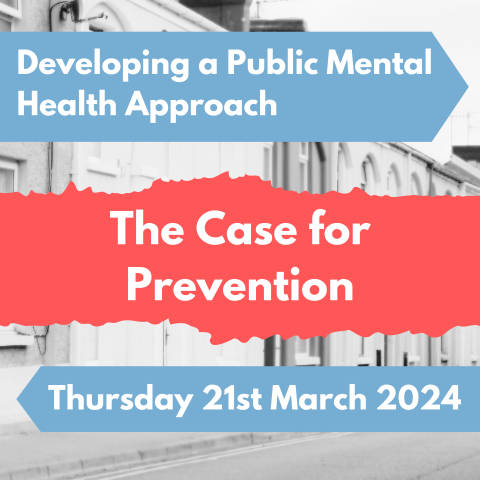Major conference to examine ways to reduce underlying causes of poor mental health

Tackling the underlying causes of poor mental health is key to achieving better outcomes for people living in Northern Ireland, a conference in Belfast will hear tomorrow. The issue has been brought into focus by data which show that approximately one in five people in Northern Ireland have a potential mental health problem.
Ahead of the Early Intervention and Prevention Conference, which will bring together policymakers, academics and professionals from statutory, voluntary and community sector organisations to focus on prevention and to consider the impact of their work on public mental health, Health Minister Robin Swann said: “The need for proactive measures to address mental health challenges has never been more pressing. Understanding and preventing poor public mental health requires cross-cutting work across all sectors if we are to tackle the social factors that impact the mental wellbeing and life outcomes of people within our society.
“This conference is a valuable opportunity to place prevention to the forefront of our thinking around mental health, providing a platform to share knowledge and explore innovative strategies that can make a tangible difference in the lives of those affected by mental health issues. Our shared commitment to addressing the critical issues surrounding mental health underscores the significance of early intervention and prevention in shaping healthier and more resilient communities.”
Keynote speakers will include Lee Knifton, Director of Devolved Nations at the Mental Health Foundation, and Dr David McDaid from the London School of Economics and Political Sciences, who undertakes a wide range of work on mental health and public health in the UK, Europe and at the global level.
Aidan Dawson, Chief Executive at the Public Health Agency (PHA), which is coordinating the conference, said: “Improving the mental health of the people of Northern Ireland is a complex but very important issue, which is why we are keen to drive forward insightful and effective conversations around how this can best be achieved. By getting to the root causes of poor mental health, and taking collaborative steps to help address these issues at source, we can take significant steps forward in improving wellbeing in our communities.
“This conference aims to bring together experts, policymakers and those on the frontline to challenge and debate how we can continually evolve what we do drive down the prevalence of poor mental health here.”
It is a priority of the Minister’s Mental Health Strategy to ensure that cross-cutting government policies will recognise their impact on public mental health and statutory agencies and departments will use their influence and resources to help prevent mental health problems.
ENDS
